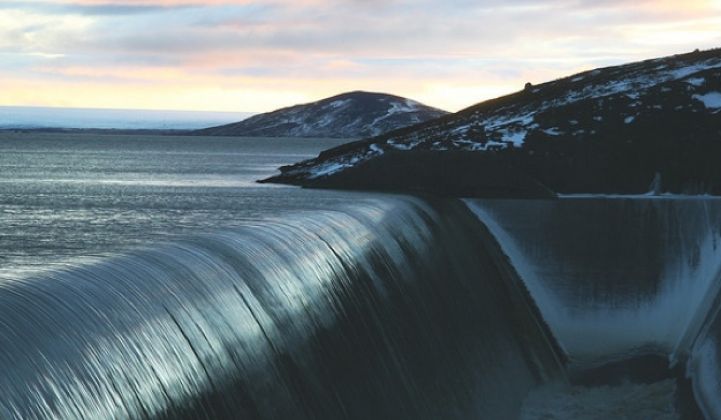President Obama's announcement this week of an ambitious Clean Power Plan to combat climate change and transition the United States to a decarbonized future deservedly received a lot of positive attention.
Now it's time for him to do the same thing for water.
The modern Clean Water Act dates back more than 40 years to 1972, when it was passed into law by the U.S. Congress in spite of a veto by President Nixon (who thought the attached $18 billion budget was too high). And it has achieved significant results, along with the Water Quality Act that followed in 1987.
But much has changed in the ensuing years.
The quality of our water, though still a concern, is no longer the central one. Today, the question facing the United States and the world alike is whether we have enough water. With a rising global population (11 billion expected by the end of the century), we face a mounting quantity issue. Will we have enough water to drink, to power the electricity grid, to grow our food and to enable industry and commerce?
As we've seen in California, where the state's water deficit is reportedly 11 trillion gallons, the answer is far from certain. Drought is no longer the exception; it's becoming endemic in many regions of the United States. And it’s only going to get worse. It's amazing that panic has not gripped the United States given that the world's eighth-largest economy, California, is threatened with running out of water. If an equivalent-size economy, for example Russia or Brazil, were in a similar situation, international warning sirens would have long ago gone off.
Something must change. Specifically, a national (and international) approach toward water is needed by the United States.
Why? Compared to energy, water is both finite and confounding. You can't choose between different types of fresh water like you can with different types of energy.
There is no coal-powered water vs. solar-powered water. Water is water. It is also very local. Even more than energy, the U.S. water market is balkanized. Water prices vary widely (and continue to be artificially low), water rights are insanely complex, and a strategic attempt at national rights management has never existed. For example, as some observers have noted, it probably doesn't make sense for California to grow the majority of America's food. Yet it continues to do so.
Despite growing signs that water is a major risk to global economic health (data shows that two-thirds of the world's major companies are exposed to water risk, often at the expense of growth), as well as increasingly a catalyst for war and mass dislocation of populations in largely poor, unstable regions around the world, there are no hints of action from the White House.
Obama mentioned drought once in his Clean Power Plan launch video, which was positioned mainly around combating climate change. But water is not only a climate issue. Even before global warming, water scarcity has been a problem (it affects about 1.2 billion people globally, both in developing and developed countries). Climate change has simply amplified the severity of the problem.
Obama chose to tap the Environmental Protection Agency to mandate action on climate with the Clean Power Plan. With little hope that legislators in Washington, D.C. will come together to solve the water threat, it's time for him to ask the EPA and other water-related agencies to do the same with regard to water.
***
Matt Rose is co-founder and CEO of APANA, a technology and services company that helps businesses manage water.



